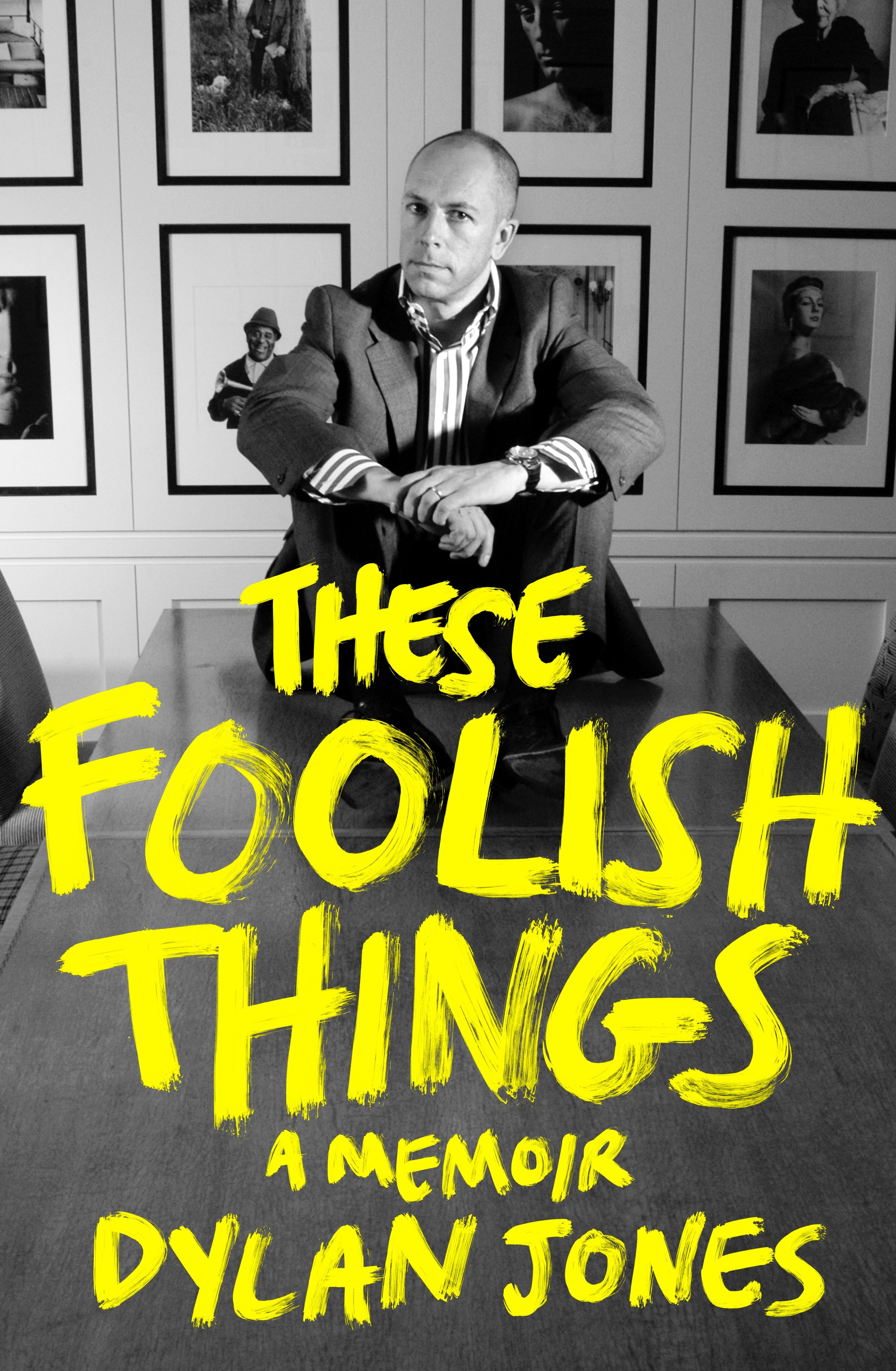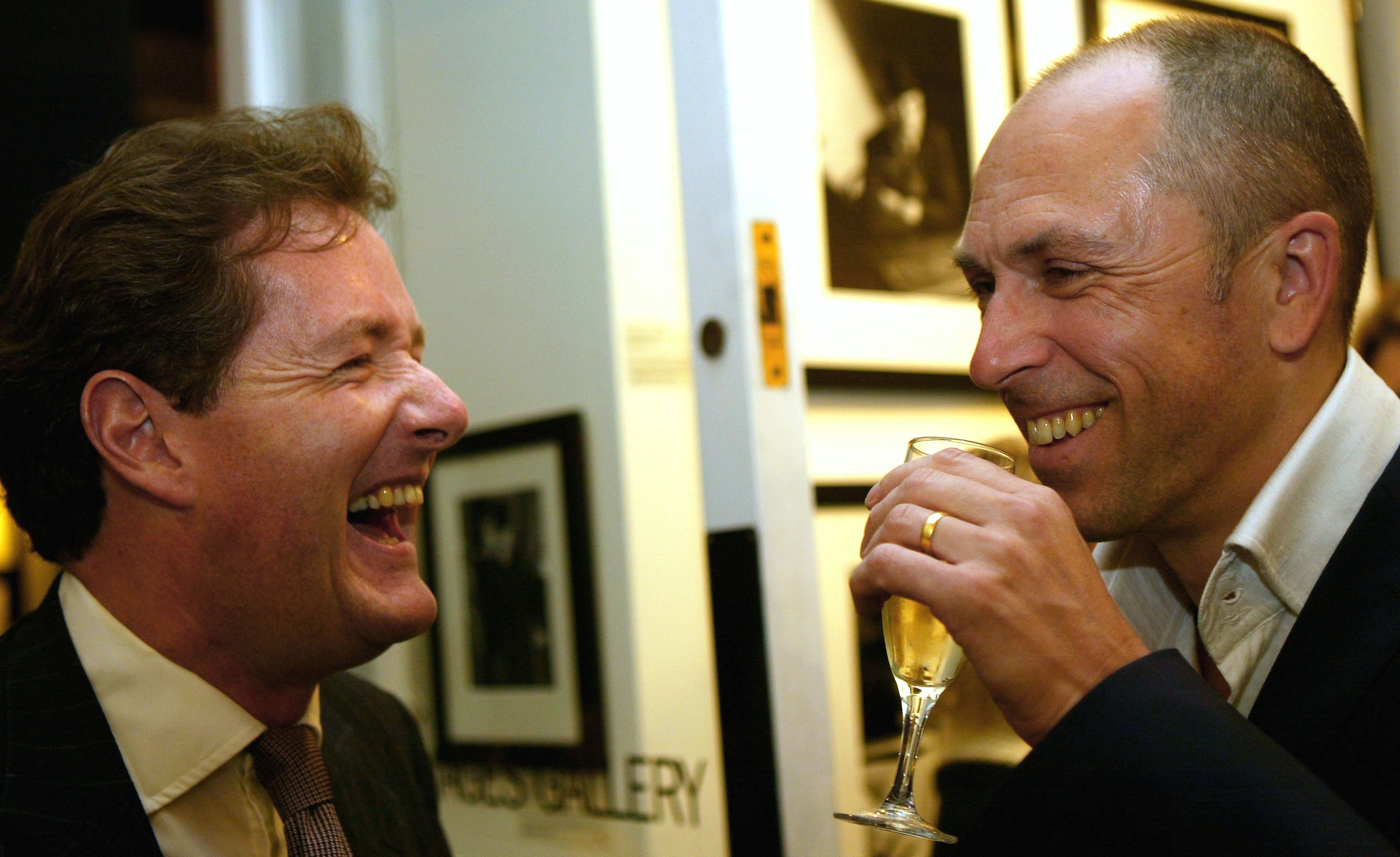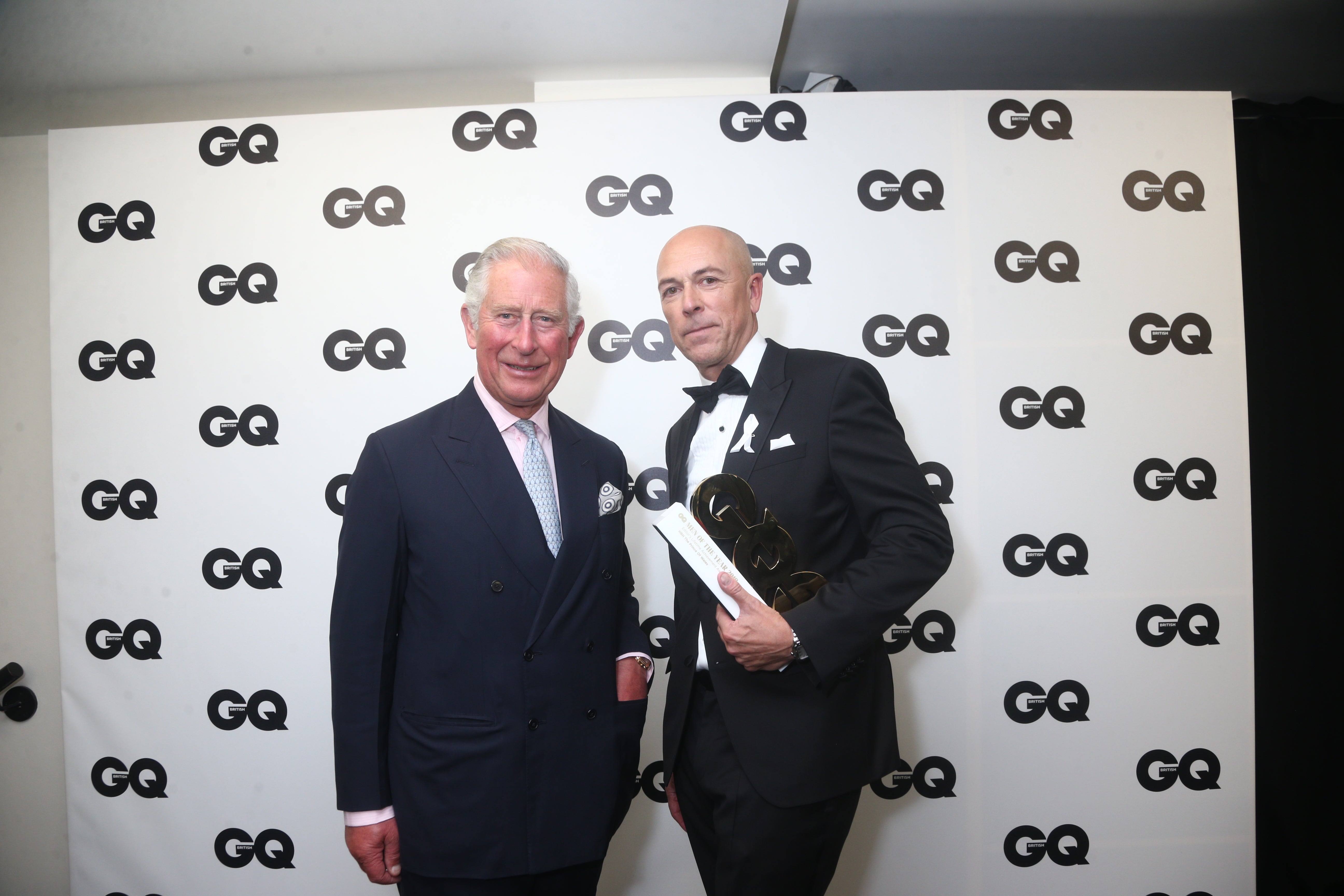Editor Dylan Jones on opening up about his shocking trauma: ‘It’s not meant to make people feel sorry for me’
As the Evening Standard boss releases a memoir, Olivia Petter speaks to him about his glory days editing British GQ, why he doesn’t consider many celebrities his friends, and how his traumatic childhood shaped the person he is today


It might seem easy to foresee what a magazine mogul like Dylan Jones would include in his memoir. Celebrity parties starring some of the biggest names in the ’biz. Salacious stories about politicians and major media types. The veritable highs and lows of running a glossy magazine for more than two decades. You expect to laugh, goggle, and cringe. What you do not expect, perhaps, is to cry.
This is what happened with me, I tell him. “Oh!” he says, more than a little surprised, as we settle into a meeting room in the offices of the Evening Standard, where he has been editor-in-chief since June 2023 – a major shift from his 22-year-long tenure as editor of British GQ. Jones’s CV is not what moved me, though. Because beneath the glitz and the gloss – all of which is there – are insights into an incredibly abusive childhood, and the revelation that he was raped at 17 years old, something he’d never previously disclosed. In the book, he confesses that he found the process of opening up on the page difficult. “The whole thing felt unnecessary, like being beaten up by my father,” he writes.
But Jones seems confused by my response, as if he didn’t expect me to acknowledge the emotional elements of his book – or at least not at first. As the author of 27 other titles, Jones is no stranger to long-form writing. From David Bowie and U2 to Jim Morrison and David Cameron, the 64-year-old has covered a gamut of subjects that span pop culture to politics. Writing about himself, though, had never really been a part of the plan. “It wasn’t my idea,” the 64-year-old says of the memoir he has now written, titled These Foolish Things. “When I left Condé [Nast, the publishing company that owns GQ], my agent suggested it and I said no. It didn’t really sit easily because it felt a bit, ‘me, me, me’.”
Initially, the book featured very little about Jones’s personal life. It was only after encouragement from his family that he decided to open up. “It’s just something that’s not particularly natural to me,” he says. Subsequently, most of the book focuses on his ascent from High Wycombe Eighties club kid to high-flying glossy magazine editor. It’s a trajectory that began somewhat serendipitously in 1983 after Jones graduated from Central Saint Martins and had been “bouncing around dead-end jobs” – one of which was selling sex toys in a shop on Portobello Road.
Out of nowhere, a photographer friend asked if Jones could interview a few people he was shooting for counterculture bible, i-D; shortly after, editor Terry Jones offered him a job. The rest unfurls from there: four years at i-D turned into an editorship at Arena, a monthly men’s title launched by Nick Logan, founder of The Face, where Jones also became a regular contributor. Next came a transition to newspapers – The Observer Magazine and The Sunday Times – and then it was on to [British] GQ. Here, he transformed the monthly title into a cultural behemoth famed for its tongue-in-cheek covers – think Kylie Minogue recreating the famous Tennis Girl poster in 2000 – and annual GQ Men of the Year Awards. Jones remained editor-in-chief until 2021, when Condé Nast announced it would be merging its editorial teams as part of a new global digital-first strategy. Most of Jones’s team exited at the same time.
“When we all left Condé Nast, I mean, some people were treated very badly,” he says. “And I said, look, get angry. But get over it quite quickly, because we had a fantastic time.” Boy, did they. Of all the celebrity anecdotes in the book, and there are many (including a corker of a meeting with Shirley Maclaine: “you could literally ask her anything; she was never going to read it”), they enter the upper echelons during Jones’s GQ years, reading less like fact and more like fiction extracted from an F Scott Fitzgerald book, each name becoming a more egregious caricature in the contemporary charade we call fame. There are dinners with Paul McCartney, heated spats with legendary photographer David Bailey (“a cantankerous sod”) and many strange – and anonymous – divas, including the wife of a British actor who insisted on being driven to the GQ Men of the Year Awards in a bulletproof car, and a “hugely successful female singer” who arrived late to the annual event only to tell people backstage, “I’m so sorry, I reek of c**k.”

Recurrent characters during the GQ years include Keith Richards, Elton John, Tracey Emin, Damien Hirst, and David Bowie. “It was a wide celebration of talent,” Jones says of the Men of the Year Awards, which drew in such high-calibre names year after year. “The people that we were really interested in were the legends.” We concur that, generally speaking, the most famous celebrities are usually the least affected and subsequently, the nicest. Despite the avid name-dropping, which one review described as “a pathology”, Jones insists he’s friends with “hardly any” celebrities. “I think it’s a very complicated relationship for some people,” he says, recalling how this became abundantly clear after lunch at a photographer’s house. “It was full of pictures of him with famous people. I thought to myself, if you go to the houses of all those famous people, he’s not going to be in any of their photos. And I think that’s quite sad.”
It’s not like Jones is genuflecting at the altar of everyone he mentions, either; many now-disgraced figures feature. There’s Harvey Weinstein (“didn’t particularly like him”); Philip Green (“he’s done some irregular things”); Russell Brand (“always thought he was an oaf”). He’s still on good terms with David Cameron, whom he once spent a year interviewing for a book they worked on together the year before he became PM. “I bumped into him at the [Chelsea] Flower Show and discovered rather weirdly that he follows me on Instagram. I think he has made terrible mistakes, but many politicians do.”

Jones is the former editor of two leading men’s magazines, one of which used to famously have a “Girls” section on its website, but he is also the father of two daughters, aged 25 and 23. Did his work impact his approach to raising young women? “I very much hope that whatever I did at work didn’t affect the way that I helped bring up my daughters,” he quips. “And my wife brought up our daughters. I was at work a lot and she bore the brunt of everything, even though she had a full-time job. But I think we brought them up quite well. I naively thought I was going to be a trendy dad.” Wasn’t he? “I mean, I was just a dad,” he laughs. “Although they liked getting free tickets to things. And meeting Harry Styles.” He says all this very matter of factly; does he regret not being around for his family more? “No, because I was around enough. And I was always very good at taking holidays.”
I’ve been accused of being dismissive, but it’s my life, I can be dismissive if I want to be
Not long into our interview it becomes clear that, despite the fact we’re here to discuss his memoir, Jones would rather talk about almost anything and anyone else other than himself. He’s quick to rebuff emotional subjects, and bats away any question that scratches beneath the glossy veneer he seems to have spent decades crafting. In the book, Jones writes in visceral detail how his “incredibly violent” RAF veteran father physically abused him and his mother, who was bisexual and would sporadically vanish to be with women she had relationships with. This, Jones reflects, left him to fend for himself, “allowing [his] father to practise more hours of unsupervised torture” on a daily basis to such a degree that it left Jones with a stammer.
“It’s not meant to make people feel sorry for me,” he says quickly. “It’s just the truth.” Jones has written about his abusive childhood before, most notably in a 2017 article for British GQ in which he recalled trialling a week-long personal growth course named The Hoffman Process. But the book dives into more detail; did it spark any conversations with people close to him? “Yeah, a lot of people were very shocked,” he says. Has it opened the door to deeper conversations? “No, I don’t think so, because I don’t particularly want to have them. I’m not that kind of person. And I’ve been accused of being dismissive, but it’s my life, I can be dismissive if I want to be.”

Jones was a teenager when he was raped; his attacker was someone in their thirties, who Jones vaguely knew. “My first thoughts were: this isn’t right. And it hurts. I was 17 and still a virgin, only now I wasn’t,” he writes.
I’m curious as to why he hasn’t spoken about it until now. “Because I didn’t think that my response to it was particularly helpful,” he says. “I almost never think about it. I was initially quite embarrassed, but that lasted about a week. And I didn’t think that was a great example because I know quite a few people who have been raped, I think lots of people do. And it’s traumatising, and it wasn’t for me.”
In the book, Jones describes himself as “indifferent” towards it. I ask more about this, noting how, in the aforementioned GQ piece, he wrote that denial is a manifestation of an abused childhood. Is he really indifferent, or in denial? “Well, I think both things would be true,” he says, before pausing. “Actually, I don’t know the answer to that question. What I do know is that my long-standing, long-suffering therapist, who I occasionally see, said to me once, ‘Look, you’re not meant to put things in boxes. You’re meant to embrace everything and to deal with it. But if you can put things in boxes and that works for you, that’s great.’”
It’s clearly complicated territory. But, despite Jones’s unease, sharing his story has positively impacted others; other survivors have been getting in touch since the book came out. “I’ve had a couple of anonymous messages,” he adds. “And actually a note from someone I know.” A male rape survivor? “Yes.” He pauses and, possibly keen to distance himself from the trauma of others, returns behind the veneer. “But you know… people… they’ve got to say something. People have been nice, if you’re going to say something, you probably want to say something quite encouraging and positive.” He taps the cover of his book on the table in front of us. “Nice colour, you know, nice logo colour.”
Our time together is almost up – Jones is running a newspaper, after all. Does he see a link between his drive for success and his abusive childhood? “I don’t think I’ve lusted after a life that I didn’t have, but I certainly wanted to be successful,” he says. “And there was some drive there. I say this to my girls: if you get excited about something, just pursue it. Because that’s the thing you want. That’s the thing that’s going to propel you through life. And if you find it at a young age, you’re lucky.”
Join our commenting forum
Join thought-provoking conversations, follow other Independent readers and see their replies
Comments
Bookmark popover
Removed from bookmarks